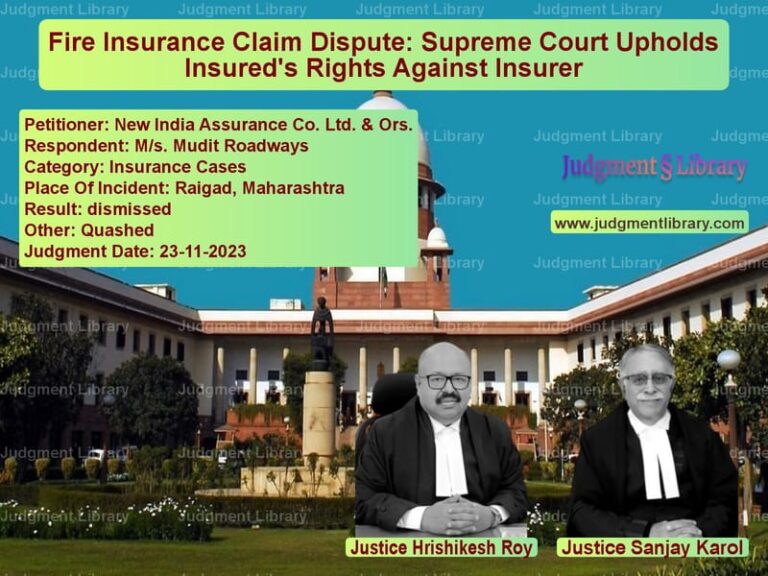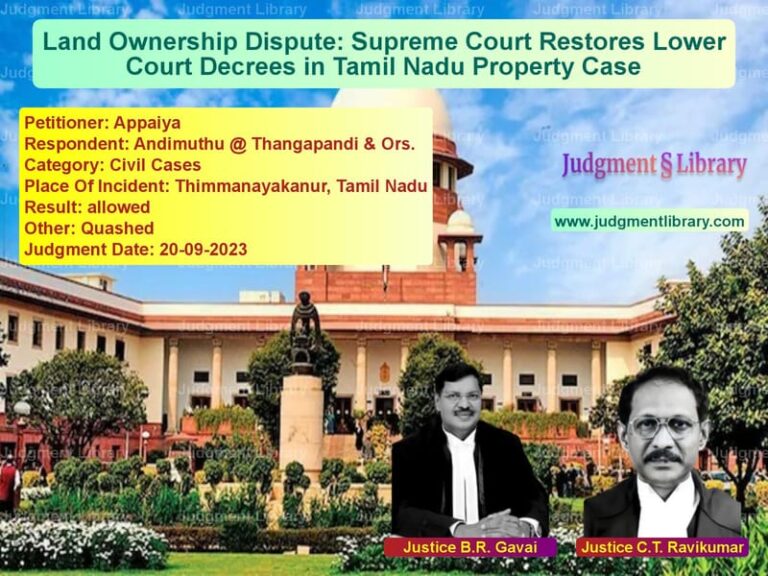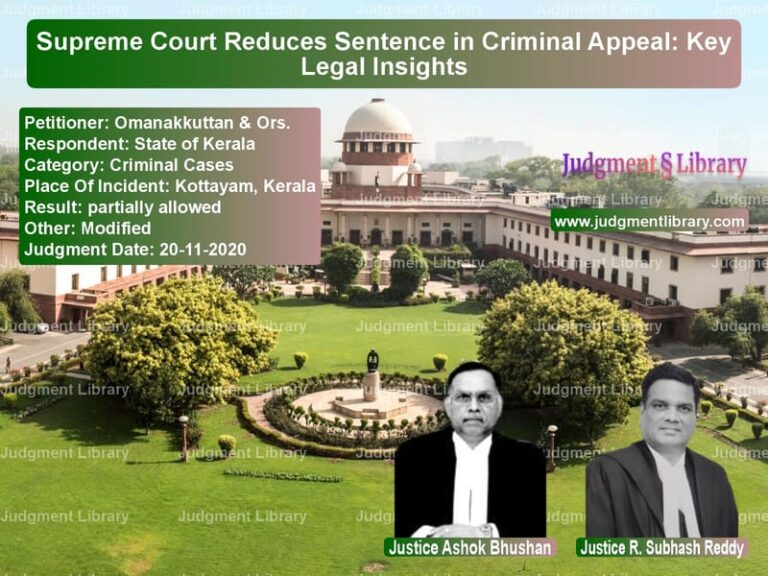Mutual Divorce and Alimony Settlement: Supreme Court Judgment Explained
The case of Priyanka Chawla v. Amit Chawla is an important legal precedent in matters of mutual divorce and alimony settlement. The Supreme Court of India resolved a long-standing marital dispute through a settlement, addressing issues of alimony, maintenance, and criminal cases between the parties. This judgment showcases the importance of mutual agreement in divorce cases and how legal proceedings can be expedited when both parties seek an amicable resolution.
Background of the Case
The appellant, Priyanka Chawla, and the respondent, Amit Chawla, were married on April 26, 2007. However, after a few years, disputes arose between them, leading to a petition for divorce. On September 20, 2014, the Family Court of Ghaziabad granted a decree of divorce in case No. 765/2011 on the ground of cruelty.
The divorce decree was challenged in the High Court of Allahabad, which upheld the Family Court’s decision on September 9, 2015. However, the High Court reduced the permanent alimony from the agreed amount of Rs. 36.50 lakhs to Rs. 29.50 lakhs, which became a point of contention.
Legal Disputes and Appeals
The primary issues before the Supreme Court were:
- Whether the alimony should be reduced despite a mutual agreement between the parties.
- Whether the pending criminal and civil cases between the parties should be quashed as part of the settlement.
- Whether the decree of divorce should be converted into a mutual consent divorce.
Arguments Presented
Appellant’s Arguments
Priyanka Chawla argued that the mutually agreed alimony should not have been reduced by the High Court, as it was a part of the overall settlement between the parties. The appellant also sought the quashing of all criminal and civil cases pending between the parties.
Respondent’s Arguments
Amit Chawla, through his counsel, submitted that he had already paid Rs. 21 lakhs to the appellant and had further deposited Rs. 5 lakhs with the Family Court. He agreed to pay an additional Rs. 5 lakhs within six months to settle all disputes and finalize the divorce.
Supreme Court’s Ruling
The Supreme Court, recognizing the efforts of both parties to amicably resolve their disputes, allowed the appeal and passed the following orders:
Mutual Divorce and Settlement
- The decree of divorce granted by the Family Court was set aside, and the parties were granted a divorce by mutual consent.
- The remaining amount of Rs. 5 lakhs was to be paid by the respondent to the appellant by June 30, 2016.
Quashing of Criminal and Civil Cases
The Court ordered the quashing of all pending litigations between the parties, including:
- FIR No. 2396/2009 under Section 498A IPC.
- FIR No. 701/2010 under Sections 147, 323, 452, 509, 506, 427, 379 IPC.
- Complaint Case No. 4953/2010 under Section 156(3) Cr.P.C.
- Domestic Violence Case No. 96/2010 under the Protection of Women from Domestic Violence Act, 2005.
- Maintenance Case No. 1/2012 pending before the Civil Judge, Ghaziabad.
- Maintenance Case No. 625/2011 under Section 125 Cr.P.C.
Waiver of Cooling-Off Period
Since a decree for divorce had already been granted in 2014, the Supreme Court waived the mandatory six-month cooling-off period and granted divorce by mutual consent immediately.
Final Payment Orders
- The appellant was permitted to withdraw the Rs. 5 lakhs deposited by the respondent in the Family Court.
- The respondent was directed to pay the remaining Rs. 5 lakhs through a demand draft in the name of the appellant on or before June 30, 2016.
Key Takeaways from the Judgment
- Mutual Consent Divorce: The Supreme Court’s ruling emphasizes the importance of amicable settlements in matrimonial disputes.
- Quashing of Criminal Cases: The judgment highlights that once a mutual settlement is reached, criminal cases filed during matrimonial disputes can be quashed to prevent prolonged litigation.
- Enforcement of Alimony Agreements: Courts respect mutually agreed financial settlements, ensuring that both parties adhere to their commitments.
- Waiver of Cooling-Off Period: In exceptional circumstances, courts can waive the mandatory six-month period required for mutual divorce.
Impact of the Judgment
This judgment serves as a landmark case for matrimonial disputes in India. It underscores the importance of mutual resolution in divorce cases and establishes that courts can intervene to expedite legal proceedings when both parties are willing to settle their disputes.
Conclusion
The case of Priyanka Chawla v. Amit Chawla is a testament to the benefits of resolving matrimonial disputes amicably. The Supreme Court’s decision to grant mutual divorce, quash pending cases, and enforce the agreed-upon alimony reflects a balanced approach to family law. This judgment provides guidance for future cases where parties seek an expedited and fair resolution to their disputes.
Don’t miss out on the full details! Download the complete judgment in PDF format below and gain valuable insights instantly!
Download Judgment: Priyanka Chawla vs Amit Chawla Supreme Court of India Judgment Dated 08-01-2016.pdf
Direct Downlaod Judgment: Direct downlaod this Judgment
See all petitions in Alimony and Maintenance
See all petitions in Mutual Consent Divorce
See all petitions in Domestic Violence
See all petitions in Judgment by Kurian Joseph
See all petitions in allowed
See all petitions in settled
See all petitions in supreme court of India judgments January 2016
See all petitions in 2016 judgments
See all posts in Divorce Cases Category
See all allowed petitions in Divorce Cases Category
See all Dismissed petitions in Divorce Cases Category
See all partially allowed petitions in Divorce Cases Category







